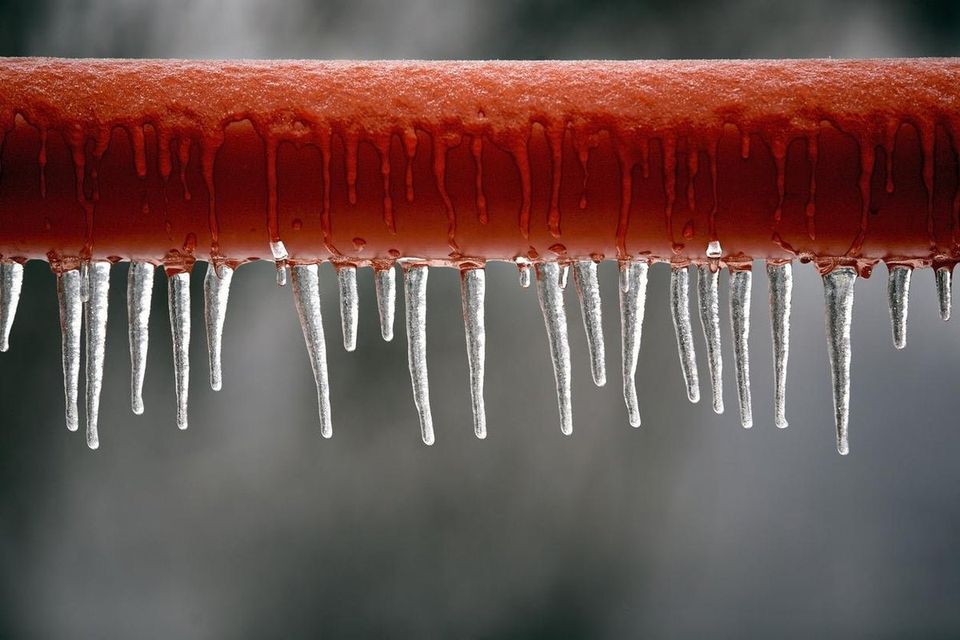We have noticed the article pertaining to Prevent Frozen Pipes below on the net and reckoned it made perfect sense to quickly share it with you over here.

Winter can ruin your pipes, specifically by freezing pipes. Right here's exactly how to prevent it from happening and what to do if it does.
Introduction
As temperatures decline, the risk of icy pipes rises, potentially bring about expensive repairs and water damages. Understanding just how to prevent frozen pipelines is important for homeowners in cool environments.
Prevention Tips
Insulating vulnerable pipes
Cover pipes in insulation sleeves or utilize warmth tape to protect them from freezing temperatures. Concentrate on pipes in unheated or exterior locations of the home.
Heating techniques
Maintain interior spaces sufficiently heated, especially locations with plumbing. Open up cupboard doors to permit warm air to flow around pipelines under sinks.
How to recognize frozen pipes
Try to find decreased water flow from faucets, uncommon smells or sounds from pipelines, and visible frost on exposed pipes.
Long-Term Solutions
Structural modifications
Take into consideration rerouting pipelines far from outside wall surfaces or unheated locations. Include added insulation to attic rooms, cellars, and crawl spaces.
Upgrading insulation
Purchase top notch insulation for pipelines, attics, and walls. Proper insulation aids keep consistent temperature levels and reduces the danger of icy pipelines.
Securing Outdoor Plumbing
Garden hoses and outdoor faucets
Disconnect and drain garden hoses prior to winter season. Mount frost-proof faucets or cover outside taps with shielded caps.
Recognizing Icy Pipelines
What creates pipes to ice up?
Pipelines freeze when exposed to temperature levels listed below 32 ° F (0 ° C) for prolonged durations. As water inside the pipes freezes, it broadens, taxing the pipeline wall surfaces and potentially causing them to rupture.
Dangers and problems
Icy pipelines can bring about supply of water interruptions, residential or commercial property damage, and expensive repair work. Burst pipes can flooding homes and create considerable architectural damage.
Signs of Frozen Pipes
Recognizing icy pipes early can prevent them from breaking.
What to Do If Your Pipelines Freeze
Immediate actions to take
If you suspect icy pipes, maintain faucets open to soothe pressure as the ice thaws. Utilize a hairdryer or towels taken in hot water to thaw pipes gradually.
Verdict
Avoiding icy pipelines requires proactive actions and fast reactions. By comprehending the reasons, indicators, and preventive measures, house owners can protect their plumbing during cold weather.
Helpful Tips to Prevent Frozen Pipes this Winter
UNDERSTANDING THE BASICS: WHY PIPES FREEZE AND WHY IT’S A PROBLEM
Water freezing inside pipes is common during the winter months, but understanding why pipes freeze, and the potential problems it can cause is crucial in preventing such incidents. This section will delve into the basics of why pipes freeze and the associated problems that may arise.
THE SCIENCE BEHIND FROZEN PIPES
When water reaches freezing temperatures, it undergoes a physical transformation and solidifies into ice. This expansion of water as it freezes is the primary reason pipes can burst. As the water inside the pipe freezes, it expands, creating immense pressure on the walls. If the pressure becomes too great, the pipe can crack or rupture, leading to leaks and water damage.
FACTORS THAT CONTRIBUTE TO PIPE FREEZING
Low Temperatures: Extremely cold weather, especially below freezing, increases the risk of pipes freezing. Uninsulated or Poorly Insulated Pipes: Pipes located in unheated areas, such as basements, crawl spaces, or attics, are more prone to freezing. Insufficient insulation or lack of insulation altogether exacerbates the problem. Exterior Wall Exposure: Pipes running along exterior walls are susceptible to freezing as they encounter colder temperatures outside. Lack of Heating or Temperature Regulation: Inadequate heating or inconsistent temperature control in your home can contribute to frozen pipes. PROBLEMS CAUSED BY FROZEN PIPES
- Pipe Bursting: As mentioned earlier, the expansion of water as it freezes can cause pipes to burst, resulting in significant water damage.
- Water Damage: When pipes burst, it can lead to flooding and water damage to your property, including walls, ceilings, flooring, and personal belongings.
- Structural Damage: Prolonged exposure to water from burst pipes can compromise the structural integrity of your home, leading to costly repairs.
- Mold and Mildew Growth: Excess moisture from water damage can create a favorable environment for mold and mildew growth, posing health risks to occupants.
- Disrupted Water Supply: Frozen pipes can also result in a complete or partial loss of water supply until the issue is resolved.
WHY CERTAIN PIPES ARE MORE PRONE TO FREEZING
- Location: Pipes located in unheated or poorly insulated areas, such as basements, crawl spaces, attics, or exterior walls, are at higher risk of freezing.
- Exterior Pipes: Outdoor pipes, such as those used for irrigation or exposed plumbing, are particularly vulnerable to freezing as they are directly exposed to the elements.
- Supply Lines: Pipes that carry water from the main water supply into your home, including the main water line, are critical to protect as freezing in these lines can affect your entire plumbing system.
- Underground Pipes: Pipes buried underground, such as those connected to sprinkler systems or outdoor faucets, can be susceptible to freezing if not properly insulated.
https://busybusy.com/blog/helpful-tips-to-prevent-frozen-pipes-this-winter/

As a serious reader about How to prepare your home plumbing for winter weather, I was thinking sharing that excerpt was a good thing. Sharing is caring. You just don't know, you may very well be doing someone a favor. Thanks so much for taking the time to read it.
Schedule A Service